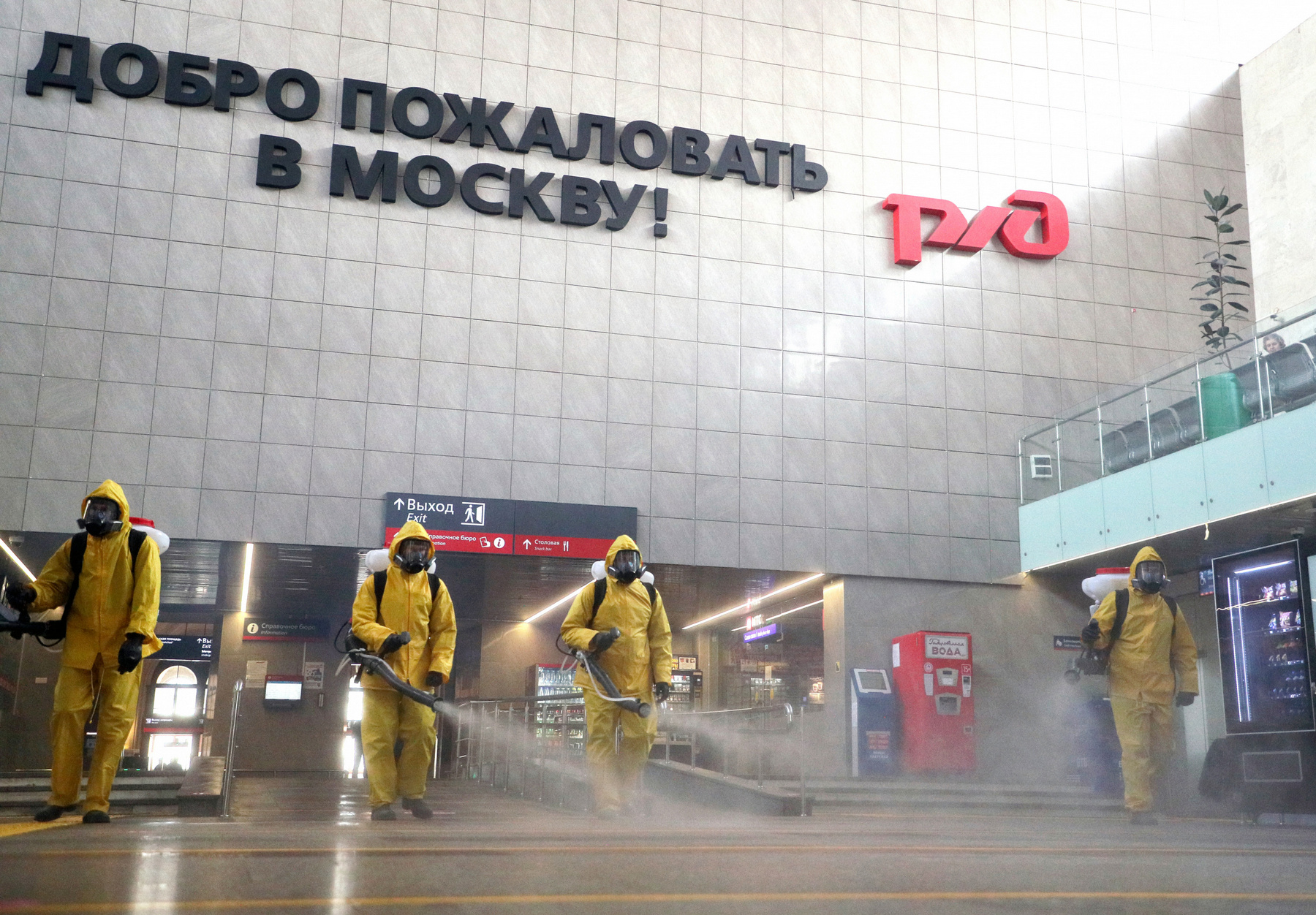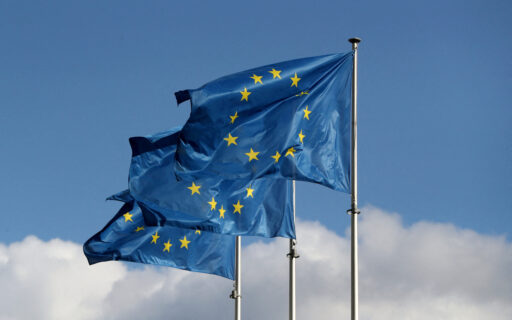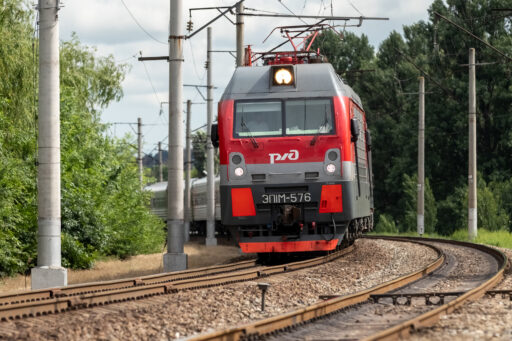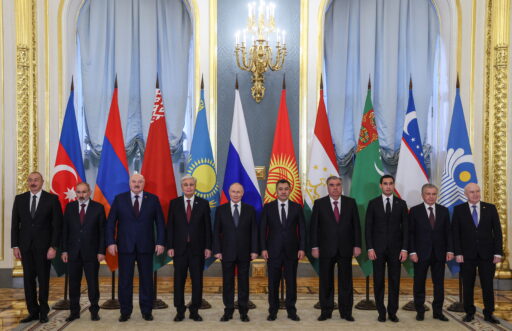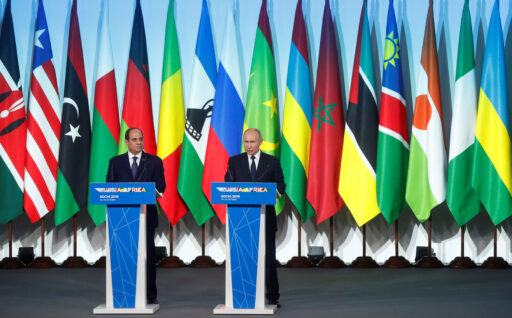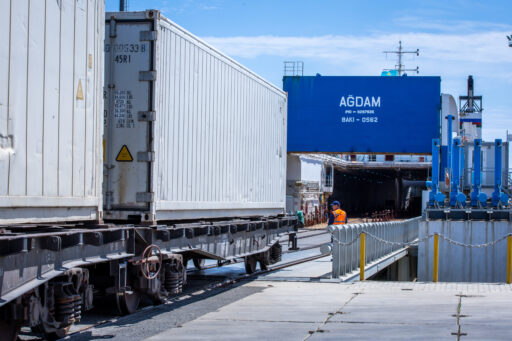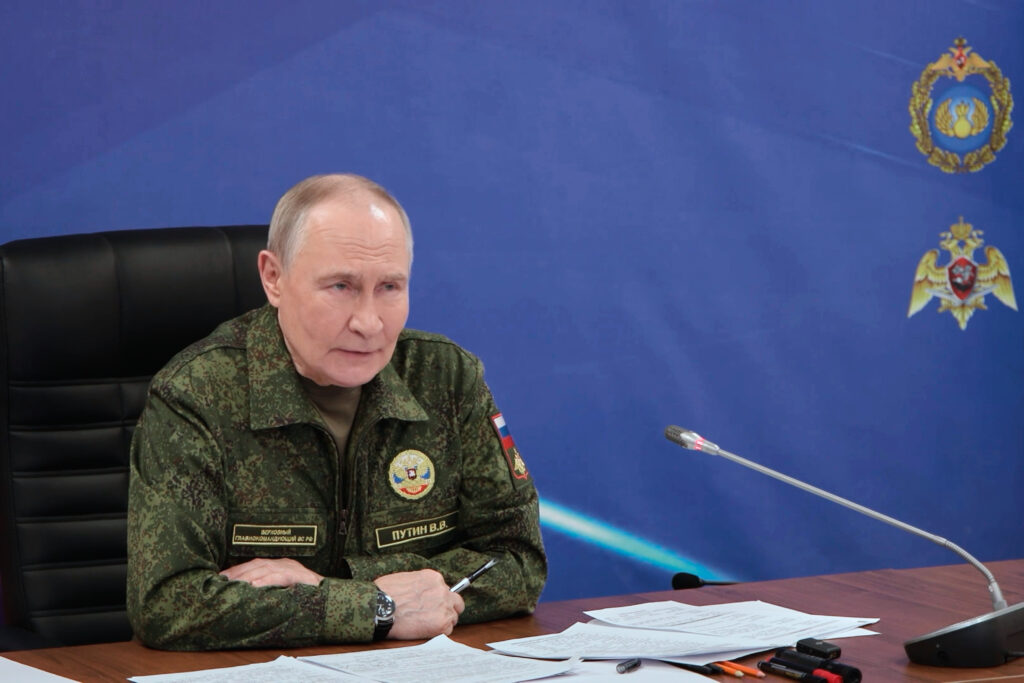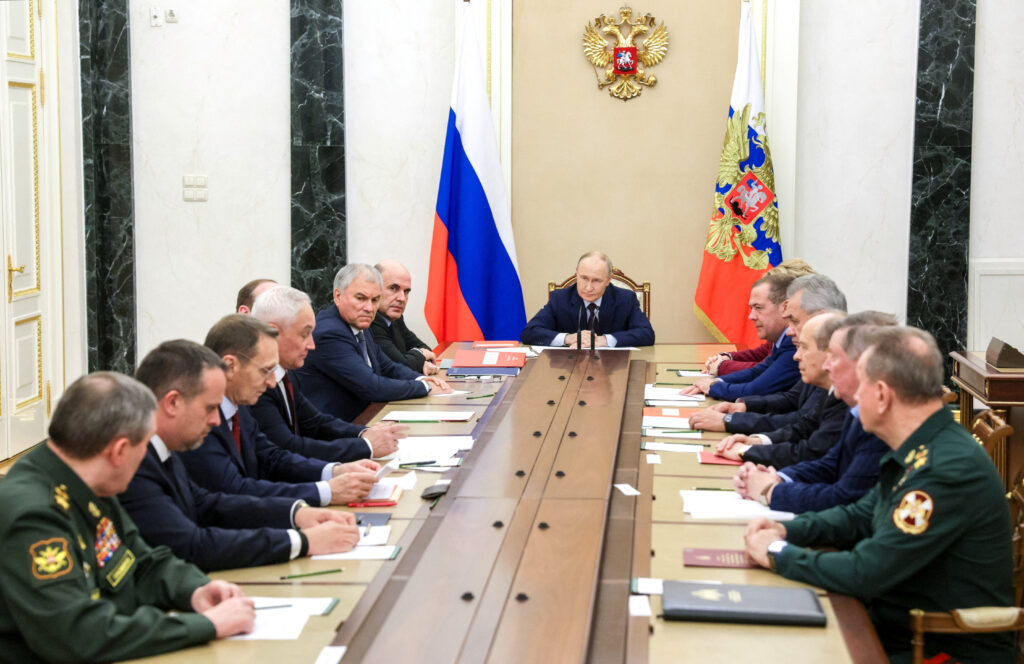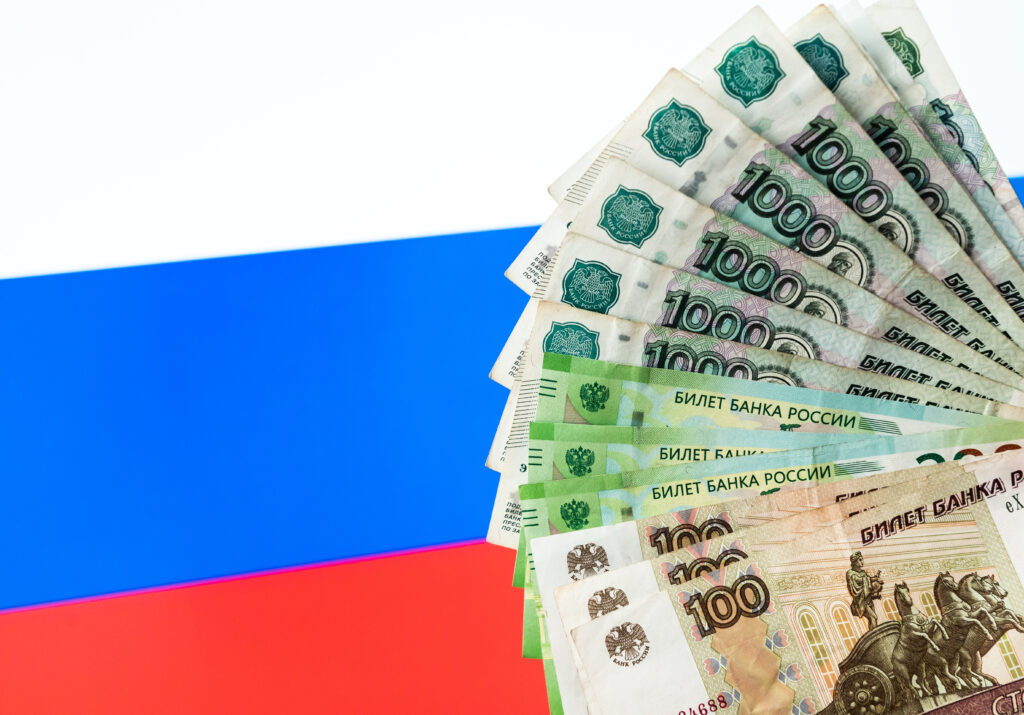The global COVID-19 pandemic has become a stress test for all countries. It clearly exposes both their strengths and weaknesses. For many, including developed countries, the condition of the national health care systems turned out to be the weakest link. Hospitals across Europe and America have struggled to cope with excess pressures during a surge of infections. Unfortunately Russia, which has been undergoing an ill-designed and unjustified «optimisation» of the medical sphere in recent years, was no exception. However, the main reasons Russia came second in the world in the number of confirmed COVID-19 cases lied elsewhere. They are to do with the singularities of its political regime and the mechanism of governance of the Russian state. As I have previously described, it comes back to «bad governance».
Today’s Russia is an example of electoral authoritarianism: an undemocratic political regime that regularly holds elections (not fair, but not 100% fictitious, either). The regime builds its legitimacy in the eyes of its citizens on the basis of voters’ support for an undemocratic leader. Such regimes are generally not suited for the successful implementation of any political course. They are less effective than democracies and «classic» dictatorships. Another reason Russia’s case became special was that the pandemic spread there, and the rest of the world, just as the regime was getting ready to take the most decisive step towards consolidation. On 10 March, the constitution was amended to allow Vladimir Putin to retain power in Russia until 2036. A «popular vote» was set for 22 April to formalise these amendments with a show of citizen approval.
Of course, amendments to the constitution were priority number one for the Kremlin. Had the pandemic not happened, this plan would most likely have been successfully implemented by now. Not surprisingly, the coronavirus was initially perceived by the presidential administration as an unfortunate obstacle on the way to achieve the main goal. Activity ramped up to ensure voter turnout. State propaganda played down the danger of the coronavirus, assuring Russians that COVID-19 only affected tourists who had been abroad. However, the scale of the infection surge forced the Kremlin to postpone the upcoming approval of constitutional amendments until a later date. This unplanned change in political strategy and the need to restructure «on the flight» triggered Putin’s late response to the pandemic challenge.
Many necessary steps came with delay. This included limiting citizens’ travel, deploying tests and preparing medical facilities for the influx of patients. First, the president officially declared a «week off». Then, deadlines were extended several more times up until 12 May. At the same time, the state of emergency and related measures were never introduced either in Russia as a whole or in its individual territories. The most important governmental measures to combat the pandemic included the introduction of criminal liability for the dissemination of false information about the infection cases. Ultimately, the authority to combat coronavirus was de facto entrusted to the heads of Russian regions. They gained rights (and responsibilities) to handle problems caused by the new coronavirus.
Administrative decentralization in itself could have been a justified measure during the pandemic. Russia is a diverse country, and the scale of the problems caused by the coronavirus varied greatly between Moscow (which proved to be the epicentre of infections) and remote regions. Yet the entire system of governance cultivated in Russia over the past twenty years did not enable the country to ensure an effective response to the pandemic crisis at the regional level. First of all, Russia had built up an «over-regulated state»: an extremely tight system to trace actions taken by all officials, leaving much room for arbitrary decisions from law enforcement and control agencies. As a result, the main incentive for local officials and other leaders (including principal physicians in hospitals) during the pandemic was not to combat the virus, but to shed responsibility for any steps that might involve later punishment. Such risk-minimising efforts resulted in massive attempts to conceal the spread of unwelcome information (whether on outbreaks or lack of personal protective equipment.) This caused a failure to provide the resources needed to deal with the consequences of the pandemic (due to the risk of being accused of a «misuse of funds»). Secondly, the hierarchy of officials at all levels, known as the «power vertical», focused on a narrow range of political priorities (achieving the required voting results at any cost, avoiding mass protests). Routine governance was confined to achieving targets imposed in a top-down manner, measured as percentages against previous years. Therefore, it is hardly surprising that during the pandemic the governors of some Russian regions provided daily reports to the Kremlin about the nearly unchanged numbers of cases. According to their reports, the COVID-19 mortality rate remained so low that the publicly disclosed news about the deceased medical workers (which was very difficult to hide) looked like some kind of anomaly against this background. Thirdly, since the main purpose and main content of state-level governance in Russia is the appropriation of rent, the pandemic created a new window of opportunity for personal enrichment for officials and their associates, ranging from various systems of passes and citizen monitoring to the supply of masks and other protective equipment. Notably, one of the reasons for mass protests that erupted in April 2020 in Vladikavkaz was the fact that although some North Ossetian enterprises were suspended, the restrictions did not cover the beer factory owned by the relatives of the head of the republic. Even if we disregard the shortage of medical supplies and the lack of funds to fight the pandemic on the ground, one could not expect a successful fight against the coronavirus from the authorities in the regions.
Moreover, the pandemic revealed an absence of professional leadership at the national level. It exposed an unpreparedness to make relevant decisions quickly. Putin delegated the fight against the coronavirus to the cabinet and the State Council working group headed by Moscow Mayor Sobyanin. He then went into self-isolation for a while. The cabinet, however, was not equipped to act independently as a collegial governing body. Mishustin, who had become prime minister two months before the pandemic, fell ill and resigned. The dissociation of government departments hindered effective steps. Through this, Rospotrebnadzor emerged as a key player during the pandemic. This watchdog agency sought to increase its own budget and powers. But crucially, it was unable to develop and take effective measures. In contrast, Sobyanin showed considerable activity. He tried to limit the spread of the pandemic through travel bans in Moscow. However, these bans were partly rushed. They could not have been fully successful when fines for violating the isolation rules were the only tool to control Muscovites. At the same time, the government’s financial support for Russians was homeopathic, only exacerbating the crisis caused by the pandemic.
As a result, Russia showed a trend that was very different from that found in the EU countries, where mass surveys revealed the «rallying around the flag» effect: citizens started to have more trust towards their governments, despite the deterioration of their financial situation and other problems. In contrast, mass surveys conducted in Russia in April showed that the level of approval of Putin’s activity had dropped to the lowest levels over the whole period of observation. Most likely, this is what forced Putin to change his tactics. On 11 May 2020, he announced the end of the period of non-working days in the country. He delegated the right to extend restrictive measures to the governors of the regions at their discretion. For the first time during the pandemic, he announced large-scale government benefits to all families with children. These steps are unlikely to help fight the coronavirus more successfully. But the Russian authorities are most probably driven solely by political considerations. Against the backdrop of an expected deep and prolonged economic downturn, one can only expect a further decline in mass support for Putin. The Kremlin seems ready to give up on pandemic-related problems. First of all, Russian leaders are vitally interested in holding the postponed «popular vote» on the constitution as soon as possible. That could bring legal measures for retaining power for years to come. The near future will show whether they succeed in carrying out this manoeuvre in a situation where Russia has effectively failed the coronavirus test already.
